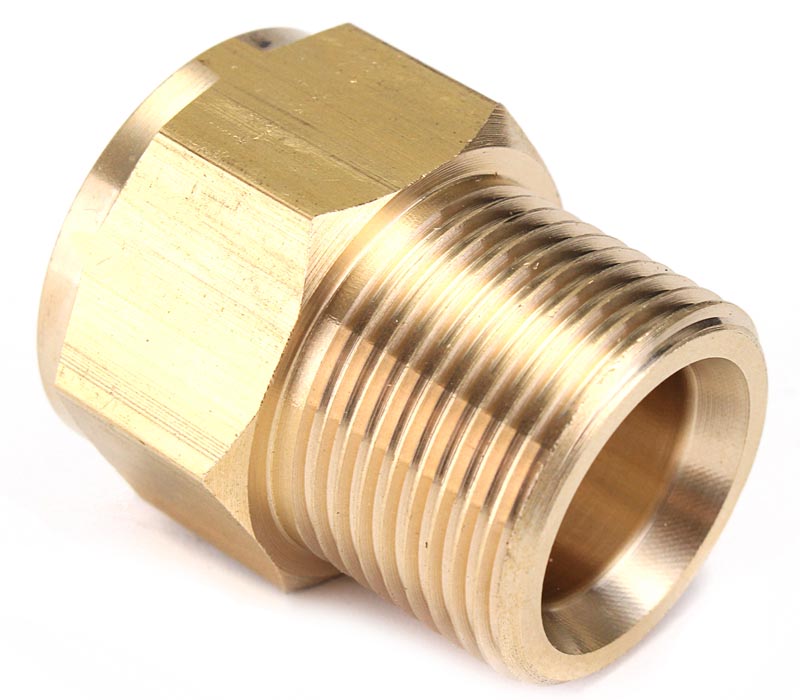1. Coarse threads do not need to be marked with pitch, such as M8, M12-6H, M16-7h, etc., mainly used for connecting threads. Compared with fine threads, due to the large pitch, the angle of thread rise is also large, and the self-locking property is poor. Spring washers are used together: the pitch is large, the thread profile is also deep, and the strength of the body is also reduced. The advantage is that it is convenient to disassemble and assemble, the standard parts matching it are complete, and it is easy to exchange.
2. The fine threads must be marked with a thread pitch to show the difference from the coarse thread. The characteristics are exactly the opposite of the coarse thread. It is specified to supplement the special use requirements that the coarse thread cannot meet. Metric pipe fittings, mechanical transmission parts, thin-walled parts with insufficient strength, space-limited internal parts and shafts with high self-locking requirements, etc.
3. To determine whether the thread is coarse or fine, first roughly determine the purpose of the lower thread, then use the caliper to measure the length of n thread pitches, divide by n, and then check the thread table. Coarse strength is high, fine seal is good. The same level ensures that the load is not much different (the fine teeth are slightly higher). When tightening, the preload of the two is close. When the anti-loosening measures are not taken, the anti-loosening effect of the fine thread is better than that of the coarse thread. It is generally used for thin-walled parts and parts with high requirements for vibration resistance.
4. When used for adjustment, fine thread has more advantages. Disadvantages of fine thread: not suitable for application on materials with excessively thick tissue and poor strength. When the tightening force is too large, it is easy to slip the wire. Both fine-thread and coarse-thread screws are used for fastening purposes. Fine-thread screws are generally used to lock thin-walled parts and parts with high requirements for vibration resistance. The fine thread has good self-locking performance, so it has strong anti-vibration and anti-loosening ability, but due to the shallow depth of the thread, the ability to withstand greater pulling force is worse than that of the coarse thread. The strength of the fine thread is lower than that of the standard thread (coarse teeth). The standard thread actually adopts the principle of equal strength, that is, the strength of the thickness dimension of the standard nut is the same as the strength of the screw, from the perspective of strength. This design is the most reasonable

So standard thread is the most widely used. However, it also has the disadvantage that the self-locking property is worse than the fine thread, so spring washers or other self-locking devices should be installed in places where the vibration is strong. Fine thread is generally not used for large stress work, it is mainly used for positioning, adjustment, fixing and so on. Its characteristic is that the outer diameter of the nut can be much smaller than the standard thread, and it is especially suitable for thin-walled cylindrical parts. For example, fine threads are widely used in various optical instruments. In addition, the self-locking property of the single-end fine-tooth thread is very good, and it is used for precise adjustment of the controllable cutting edge. It is used in measuring instruments similar to micrometers. The shortcoming of the fine thread is that the thread is easy to break, which affects the installation and disassembly. A slight dimensional error may cause the screw to be screwed and the nut damaged at the same time during installation.